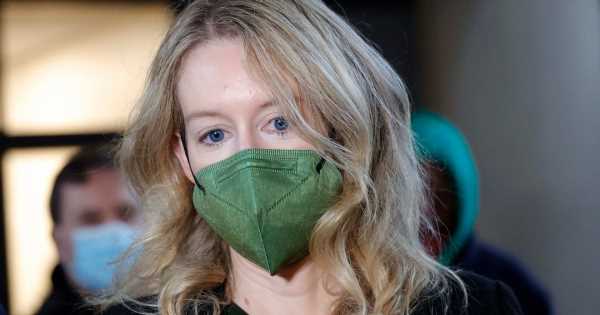
Theranos founder and former chief executive officer Elizabeth Holmes, who once promised “lab on a chip” technology to upend the diagnostics industry, was found guilty of four counts of fraud on Monday.
The verdict follows months of testimony, including from doctors, former Theranos employees, board members, patients, and Holmes herself, about their experiences with the once-vaunted blood testing startup.
“Holmes and [former Theranos chief operating officer Ramesh] Balwani used advertisements and solicitations to encourage and induce doctors and patients to use Theranos’ blood testing laboratory services, even though, according to the government, the defendants knew Theranos was not capable of consistently producing accurate and reliable results for certain blood tests,” read the indictment.
“It is further alleged that the tests performed on Theranos technology were likely to contain inaccurate and unreliable results,” the indictment continued.
WHY IT MATTERS
Theranos had sought to make a splash in the health industry with its technology, purportedly able to produce test results from a finger-prick blood sample.
But after a series of damning media reports, research studies and federal inquiries, the company floundered – eventually shuttering in 2018.
That year, Theranos and Holmes agreed to settle what the Securities and Exchange Commission referred to as charges of “massive fraud.”
“The complaints allege that Theranos, Holmes and Balwani made numerous false and misleading statements in investor presentations, product demonstrations, and media articles by which they deceived investors into believing that its key product – a portable blood analyzer – could conduct comprehensive blood tests from finger drops of blood, revolutionizing the blood testing industry,” said the SEC in a 2018 press release.
“In truth, according to the SEC’s complaint, Theranos’ proprietary analyzer could complete only a small number of tests, and the company conducted the vast majority of patient tests on modified and industry-standard commercial analyzers manufactured by others,” the agency continued.
These allegations were echoed by numerous witnesses in the Holmes trial, including former Theranos lab director Adam Rosendorff, who testified in September 2021.
“The company was more about PR and fundraising than patient care,” said Rosendorff, according to the Verge reporting. Medical providers also took the stand to testify about their interactions with the company’s tech.
As reported by the Wall Street Journal, Arizona-based Dr. Mark Burnes discussed abnormal – and highly varied – prostate-antigen results for a patient over the course of about two months. The doctor eventually received a notice a year later voiding two of the four results.
Another provider, nurse practitioner Audra Zachman, testified in September about one of her patients receiving inaccurate test results suggesting she was having a miscarriage. That patient, Brittany Gould, had received a finger-prick test at a Walgreens-based Theranos wellness center. After the abnormal results, Zachman suggested she get another test from Quest Diagnostics, which suggested a normal pregnancy.
Zachman, who originally described Theranos as “very exciting,” said the results “stood out as such a red flag,” as the Verge reported.
Holmes faced 11 charges of fraud and was found guilty on four of them: three counts of wire fraud and one count of conspiracy to commit wire fraud. The jury found her not guilty on four other counts regarding defrauding patients and was unable to reach a verdict on three counts of deceiving investors.
Holmes is expected to appeal; each count could carry a maximum sentence of 20 years in prison and a fine of $250,000, plus restitution.
THE LARGER TREND
Despite Theranos’ very public struggles, other health systems have made progress in the world of innovative blood testing.
For instance, NHS England announced in June 2021 that it would pilot a blood test – developed by United States-based GRAIL – aimed at detecting more than 50 types of cancer prior to the emergence of clinical symptoms.
Meanwhile, researchers have investigated whether artificial intelligence-powered blood tests may help with spotting mood disorders and early Alzheimer’s.
ON THE RECORD
“The Theranos story is an important lesson for Silicon Valley,” said Jina Choi, then-director of the SEC’s San Francisco Regional Office, in a statement in 2018.
“Innovators who seek to revolutionize and disrupt an industry must tell investors the truth about what their technology can do today, not just what they hope it might do someday,” Choi said.
Kat Jercich is senior editor of Healthcare IT News.
Twitter: @kjercich
Email: [email protected]
Healthcare IT News is a HIMSS Media publication.
Source: Read Full Article